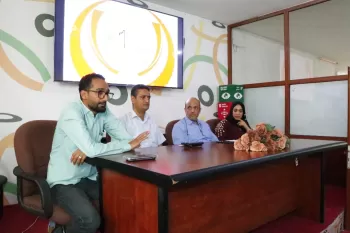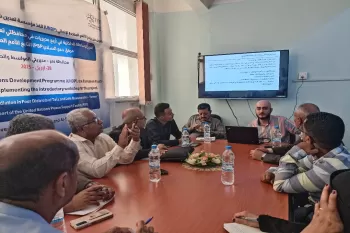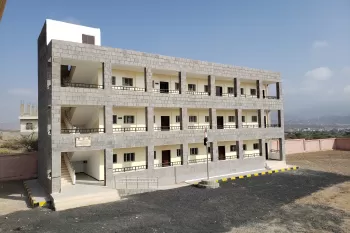Link Humanitarian Response to Sustainable Development in Yemen
Humanitarian assistance is of great importance to the Yemeni economy, which comes under conditions of war and the weak performance of the government sector towards the needs of the population. Despite the shortcomings in the humanitarian response since 2015, it cannot be overlooked to recall that United Nations, international and local organizations operate under extremely complex conditions and face difficulties in reaching the groups and communities most in need of assistance, owing to the precarious security situation, high risks and obstacles to their work when surveying needs, bureaucratic restrictions and procedures for licensing projects and activities, as well as the high cost of transporting and securing imports. Shipping companies carry up to 16 times more war risk insurance than in any other country, with nearly 90 percent of the food imported through the country's ports that was damaged by the war and not well maintained. Ships are also subject to the current inspection and to ship-to-ship unloading of containers, and such procedures make 50 percent of the cost per kilo-gram of wheat a transport costs.
Despite the importance of continued humanitarian assistance in Yemen to alleviate the crisis, the dependence of 14 million people on emergency relief leaves an unproductive community waiting for aid at the end of each month. There is therefore a consensus that the localization of humanitarian action in Yemen and the improvement of humanitarian response mechanisms are now urgent in order to link humanitarian response to sustainable development and to promote the capacities of local organizations and ensure their sustainability as active partners of the Government and the private sector, apart from empowering war-affected communities to devise innovative solutions to recovery and economic recovery and to involve them in managing available resources in a transparent and accountable manner.
We appreciate the role of UN and international organizations working in Yemen. We are confident that they will interact with the Localization Initiative, signed at the 2016 Humanitarian Summit, and fulfil their commitments to the donor community in order to improve the effectiveness, efficiency and sustainability of humanitarian action, develop effective partnerships with local organizations and enable them to lead the humanitarian response.
We also appreciate the interaction of the Supreme Council for the Management and Coordination of Humanitarian Affairs and International Cooperation (SCAMCHA) with local organizations, its sponsorship of the first periodic meeting, its unequivocal support for the localization initiative and the building of a strategic partnership with them.
We thank the Ministry of Planning and International Cooperation in Aden for its interaction with the efforts of local organizations in the localization of humanitarian action, which will result in a partnership framework that ensures coordination and integration and builds bridges of trust and transparency between the two parties, thereby reducing the burden on Government bodies throughout the country and supporting their efforts to provide services and achieving sustainable development.
Moreover, local organizations should set their priorities, elaborate their common vision, work together and have a collective voice in advocating for more equitable and just partnerships.
* Chairman of Tamdeen Youth Foundation
Coordinator of the Humanitarian Action Localization Initiative in Yemen




